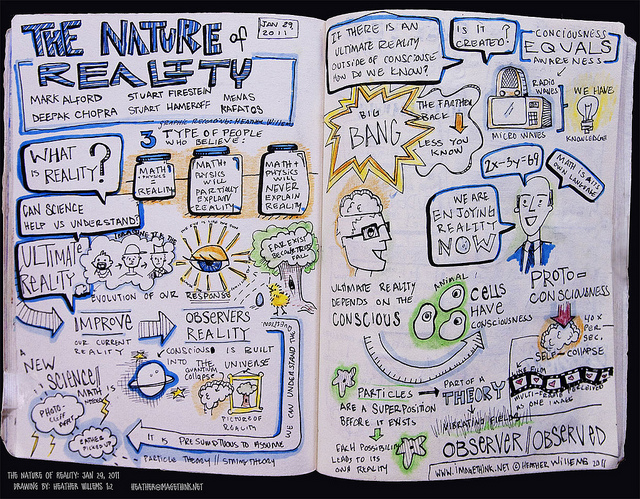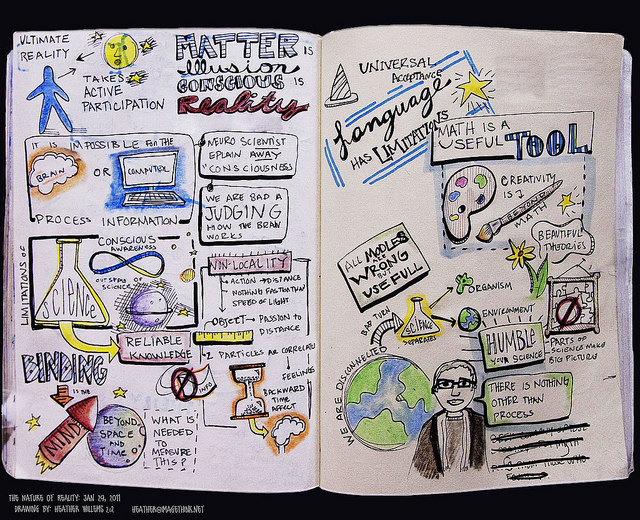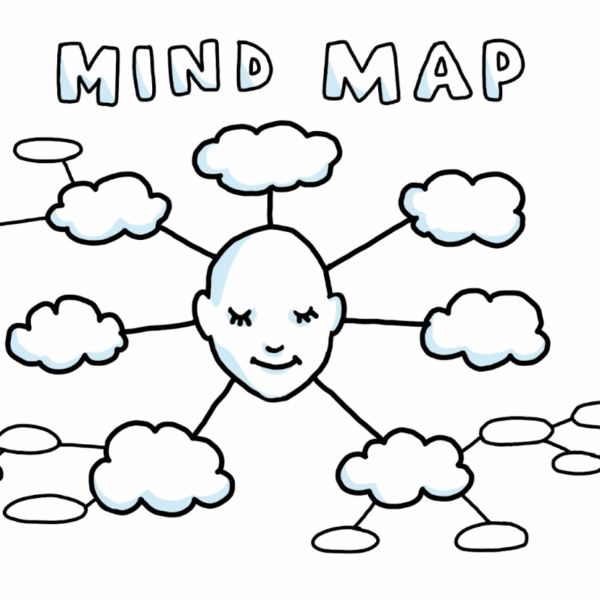

Participants: Mark Alford ; Deepak Chopra (moderator); Stuart Firestein; Stuart Hameroff ; Menas Kafatos.
Language has limitations, mathematics is a useful measuring tool, and creativity reaches far beyond mathematics.
This is simply one idea that drew itself into the note that I kept at the Philoctetes Center during this afternoon’s panel discussion. Deepak Chopra moderated, asking “simple” questions such as, “Is there an ultimate reality outside of the conscious mind and if so, how can mathematics and physics help us understand?”
The drawings above capture the panel’s response in both text and image. Although the text is high-level, the images function as memory triggers for those in attendance. The images are developed from the panelist own visual language and the metaphors that they used to further explain their perspective on the topic.
Below is a description of the discussion as written on the Philoctetes Center’s website.
In the concluding chapter of The Road to Reality, mathematician Roger Penrose asks, “What is reality?” He goes on to state, “I do not believe that we have yet found the true ‘road to reality,’ despite the extraordinary progress that has been made over two and half millennia, particularly in the last few centuries. Some fundamentally new insights are certainly needed…. Some readers may still take the view that the road itself may be a mirage. Others might take the view that the very notion of a ‘physical reality’ with a truly objective nature, independent of how we might choose to look at it, is itself a pipe dream.” Penrose’s inquiry provides the parameters for this roundtable–can physics and mathematics fully describe reality? Is it possible that reality will never be fully described within a mathematical framework, thus questioning whether mental processes and consciousness can be fully explained within the physics/mathematics paradigm? Is it possible that a future, yet undiscovered physics/mathematics will accurately define reality?

